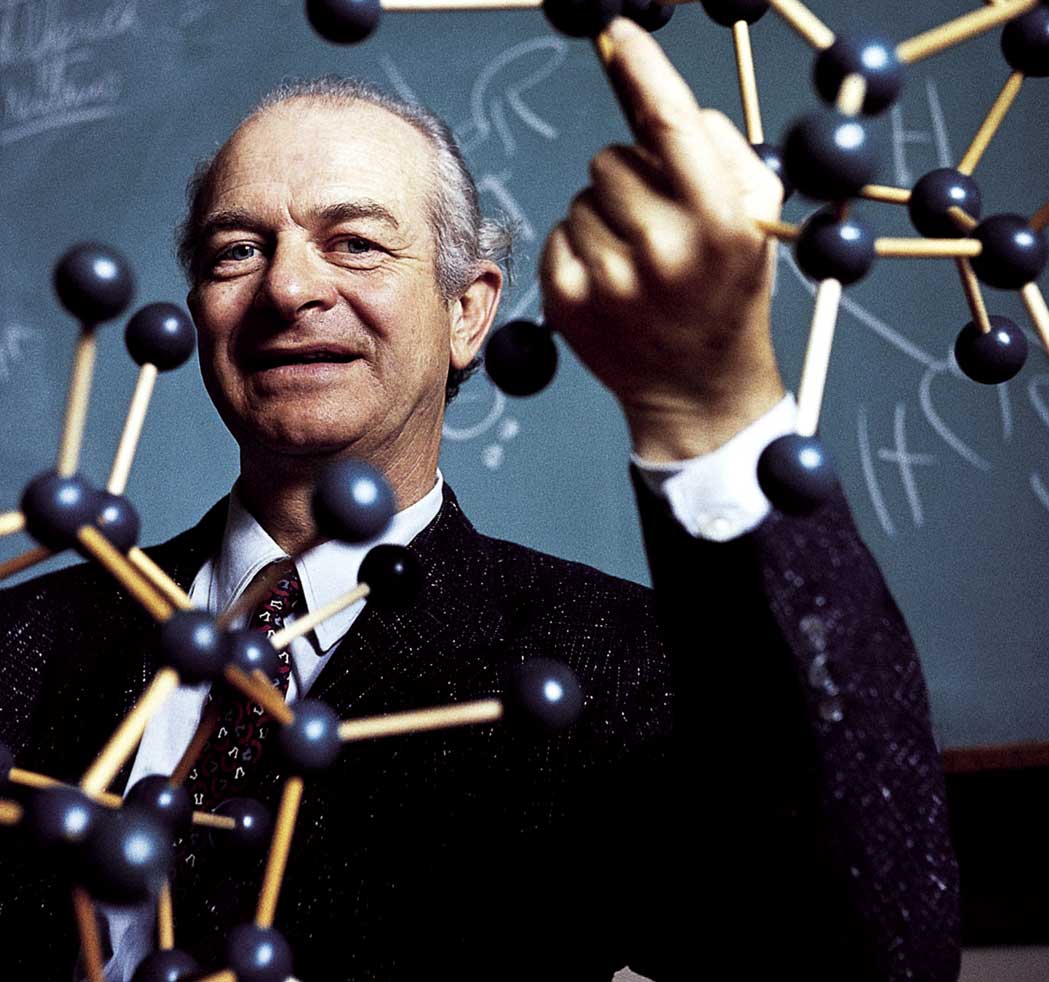
Heralded as one of the greatest scientists of the 20th century, Linus Pauling is the only person to have been awarded two unshared Nobel Prizes. Also considered to be the most influential chemist in history, Pauling was a founder of quantum chemistry, molecular biology, and molecular genetics. As prolific as he was original, Pauling's accomplishments include being a highly successful author and educator. During his lifetime he managed to publish more than 1,200 papers and books, of which about 850 dealt with scientific topics. Some of his well-known books include Vitamin C and the Common Cold, Cancer and Vitamin C, and How to Live Longer and Feel Better.
Pauling was a member of numerous professional societies around the globe, and awards, medals, and honorary degrees were showered upon him during throughout his career. In his later years, he used his zest for communication to passionately speak out against the development of nuclear weapons. For his scientific work, Pauling was awarded the Nobel Prize in Chemistry in 1954. For his peace activism, he was awarded the Nobel Peace Prize in 1962.
In need of money after his undergraduate years, Pauling enrolled in the first graduate program that offered him adequate support. In 1922 he showed up on the campus of the California Institute of Technology, unaware that it would be his home for the following three decades. At Caltech, Pauling became one of the first chemistry students in an outstanding doctoral program designed and overseen by the famed chemist Arthur Amos Noyes. Importantly, Noyes pointed Pauling in the direction of a new experimental technique called x-ray crystallography, which enabled scientists to learn about the sizes and configurations of atoms within molecules and crystals. Consequently, Pauling published several seminal papers on the crystal structure of minerals while he was at Caltech. In 1925 he received a Doctor of Philosophy degree in chemistry, with minors in physics and mathematics, graduating summa cum laude.
In 1927, Pauling's transition to a faculty position with Caltech proved to be a highly fruitful arrangement for both him and the university. The visionary thinker would go on to spend more than thirty years on the Caltech campus, starting as an assistant professor in theoretical chemistry, and later being promoted to Chairman of the Division of Chemistry and Chemical Engineering, a position he would hold until 1958. In 1986, Caltech commemorated Pauling's contributions with a Symposium and Lectureship. The Pauling lecture series at Caltech began in 1989 with a lecture by Pauling himself. On top of that, the Caltech Chemistry Department renamed room 22 of Gates Hall the Linus Pauling Lecture Hall, since Pauling spent so much time there.
